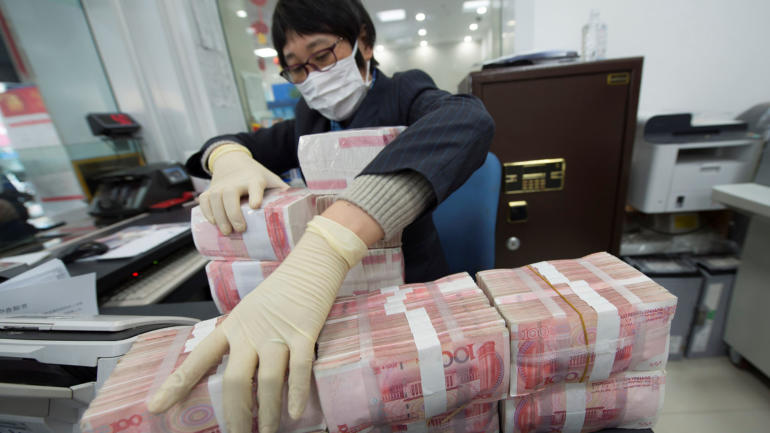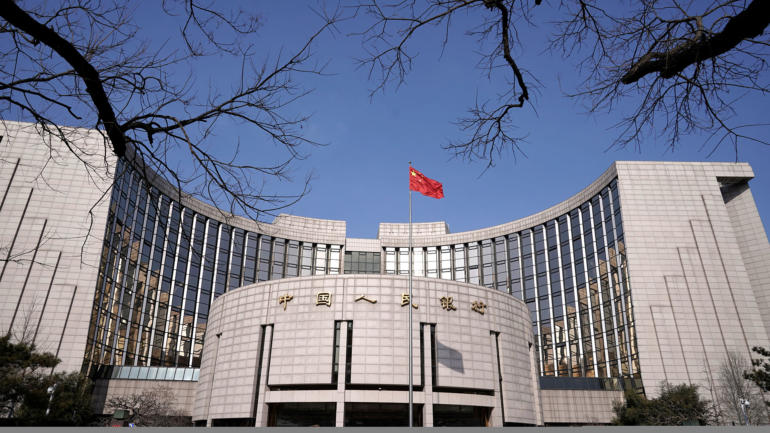Editor’s note: Matteo Giovannini is a finance professional at ICBC in Beijing and a member of the China Task Force at the Italian Ministry of Economic Development. The article reflects the author’s views, and not necessarily those of CGTN or CGTN America
2020 has started with unexpected economic and social problems related to the coronavirus spread from the city of Wuhan across China. The Chinese government has been making huge efforts to protect its people and the international community in China from infection.
One of the most drastic actions taken by Chinese leadership has been to invite citizens to self-quarantine in their homes and ordering companies to delay the reopening of factories and offices for several weeks with serious consequences on the real economy.
This decision has certainly benefited online-based businesses, such as education, and overloaded with work delivery companies but on the other side of the coin brick-and-mortar businesses have been severely affected, with many being closed since January 24 when the Chinese Lunar New Year holiday begun, they are now seeing their survival at risk.
This is especially true for small and mid-sized enterprises (SMEs) that, due to the loss of production that has hit both domestic and global supply chains, have been unable to do business and to fulfill orders forcing customers to look for different suppliers outside of China. On top of this, a large number of companies are struggling from a financial perspective due to the lack of liquidity, as the effect of reduced incomes has put at serious risk repayments to creditors and remuneration of wages to employees.
According to Reuters, more than 300 companies in China have approached lenders for a total amount of over $8 million in loans in a list of companies that was sent by the Beijing Finance Bureau to all the major banks in an attempt to extend preferential loan rates to companies that are actively contributing to fight the virus or that have been severely financially hit.

A staff member wearing a face mask arranges stacks of Chinese yuan banknotes at a bank in Nantong, Jiangsu province, China January 30, 2020. Picture taken January 30, 2020. (China Daily)T.
The list included Xiaomi, in search of loans for the production of medical equipment such as masks and thermometers; Meituan Dianping, to provide free food deliveries to medical workers in Hubei, Didi, AI Start up Megvii and cybersecurity company Qihoo 360.
The Industrial and Commercial Bank of China (ICBC), the country’s biggest lender, this week has issued over $6 billion in loans in part used to combat the epidemic and in another part given to companies to restart their production after the holiday break. ICBC’s effort has been not only limited to providing loans but also in setting up a special fund for equity financing of companies affected by the epidemic and in desperate need of financial support.
ICBC’s intervention comes as a consequence of the policies released by the government to reduce financial burdens of SMEs in order to limit the impact on the national economy. For this reason, lenders have been required to provide loans with interest rates less than 1.6 percent to companies that produce and deliver medical supplies and life necessities.
Moreover, the Chinese Ministry of Finance through its central bank (PBOC) has taken initiative to allocate special-purpose bond quotas for over $40 billion to local governments in an attempt to stimulate a slowing economy severely hit for at least the first quarter of this year.
The special-purpose bonds, financial securities repaid from the revenues generated from the projects funded, are not a new instrument in the toolbox of the PBOC since they were introduced for the first time five years ago to fund infrastructure and public welfare projects, or more in general for the public interest.
The PBOC this week has also decided to allocate an additional $80 billion of general bond quotas to regional governments. General bonds differ from special-purpose bonds since no specific project is identified as the source of funds to repay the bond obligation and any source of revenue including tax, fees or issuance of new securities can be used for repayments.
What is evident from these initiatives is that, even in an extremely challenging time, China is able to mobilize human and financial resource in a way and in a scale that no other country would possibly do and this represents an undoubted strength for the country.
History teaches that China can cope with difficulties better than anyone else and, in a global economy obsessed by quarterly performances, China is willing to give up the economic performance of a quarter or two by focusing on restructuring its domestic economy, finding the antibodies and then moving on stronger than ever.
(If you want to contribute and have specific expertise, please contact us at opinions@cgtn.com)
 CGTN America
CGTN America
 The headquarters of the People’s Bank of China, the central bank, is pictured in Beijing, China, as the country is hit by an outbreak of the new coronavirus, February 3, 2020. REUTERS/Jason Lee
The headquarters of the People’s Bank of China, the central bank, is pictured in Beijing, China, as the country is hit by an outbreak of the new coronavirus, February 3, 2020. REUTERS/Jason Lee
